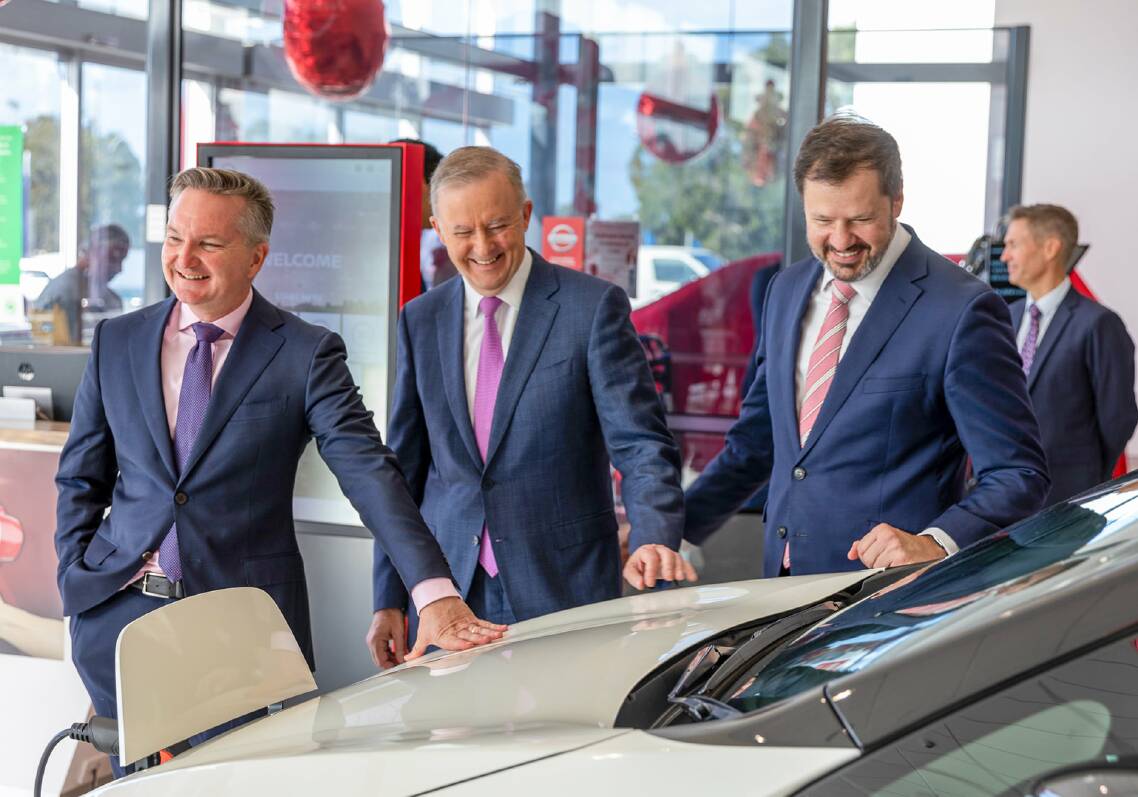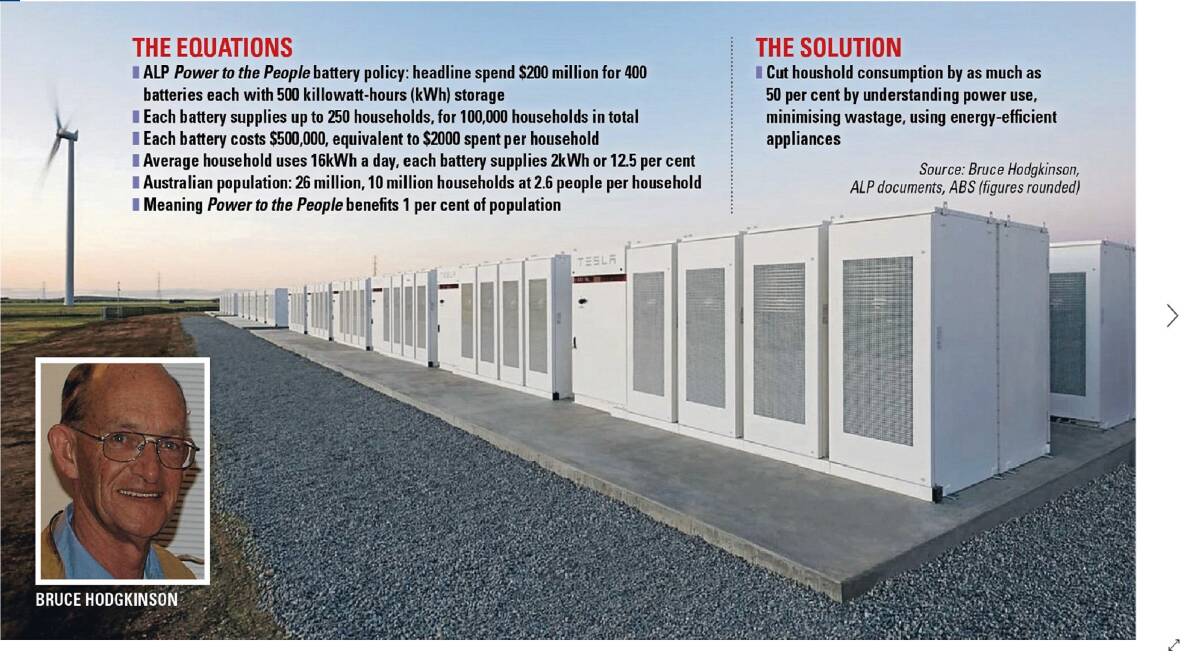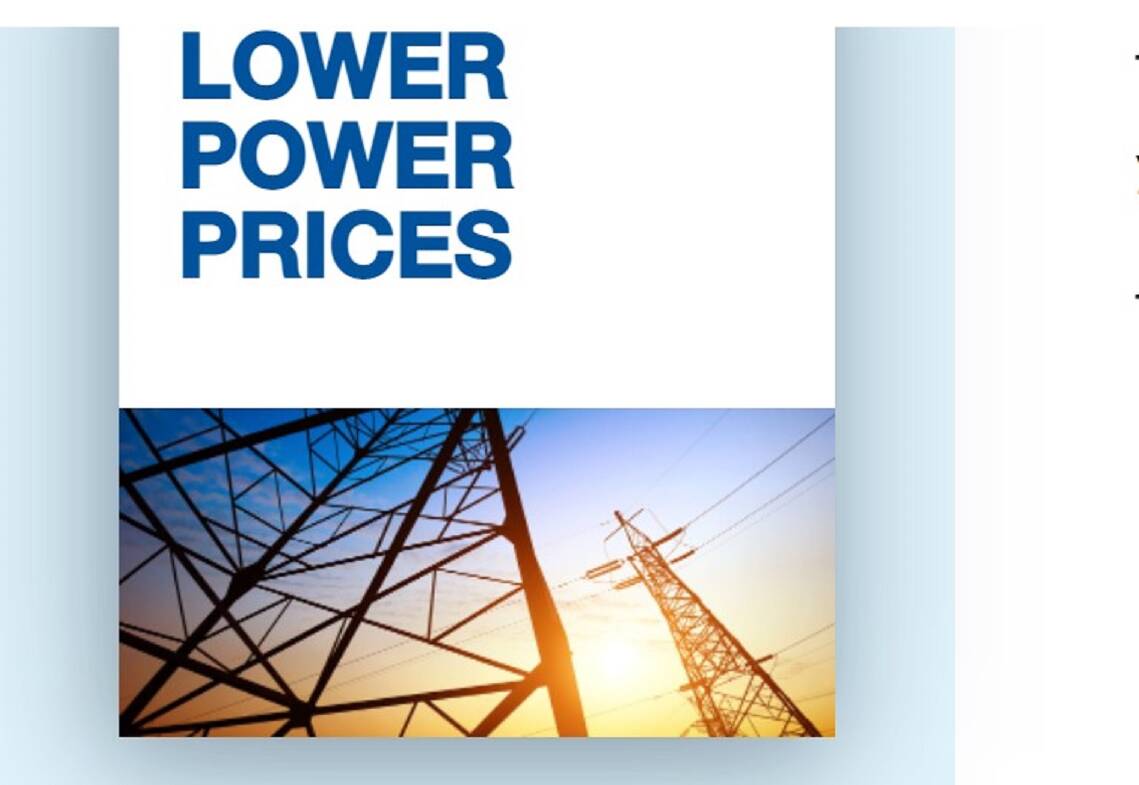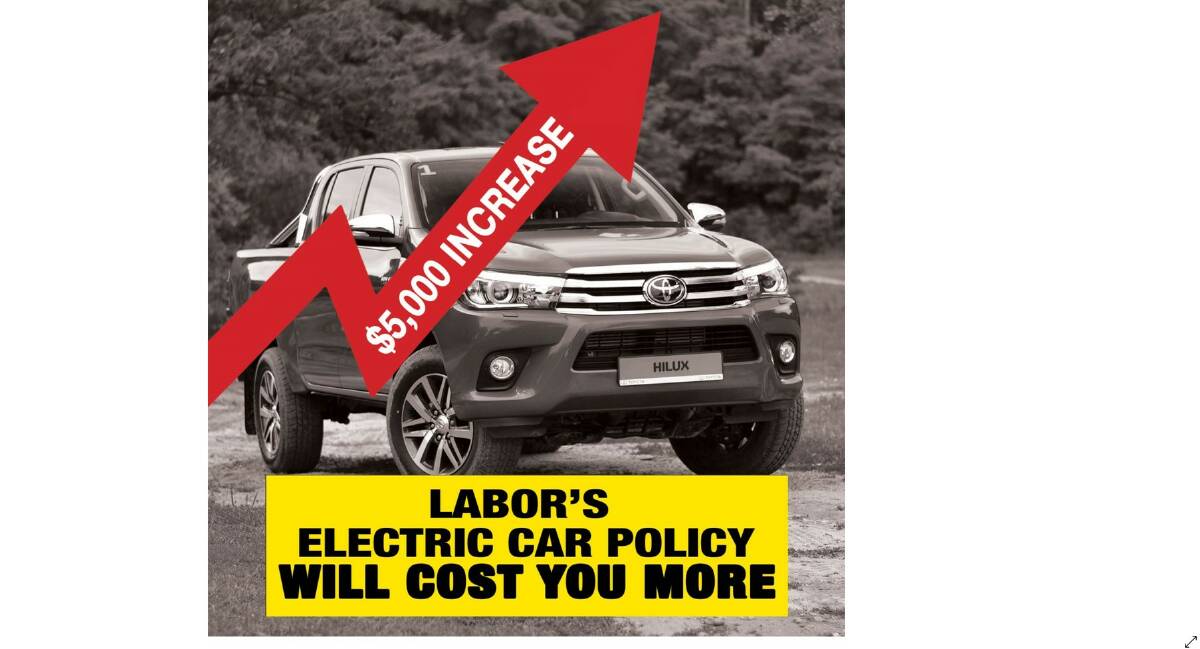
BOTH major parties are overstating the benefits and understating the costs of their power bill and electric car election policies, a Hunter energy consultant says.
Bruce Hodgkinson, who runs the Power Bill Doctor energy efficiency consultancy, wants electricity policy questions raised in tonight's third election debate, moderated by 7NEWS political editor Mark Riley, who began his career at the Newcastle Herald.
Mr Hodgkinson said the ALP's Power to the People policy involved spending $200 million to install 400 grid-sized batteries for just 1 per cent of the population at most, making it a poor use of taxpayer dollars.
Mr Hodgkinson said supplying the electricity needs of industry without fossil fuels was an even greater problem and he believed nuclear power was the only feasible way to do so.
He acknowledged that government spending on renewables was aimed, in part, at encouraging the private sector to invest in the same or similar technologies.
But he said spending $200 million to benefit just 100,000 people would lead to no appreciable "dollar saving" and had no real "return on investment" or ROI for the government.
The Power to the People battery policy was launched in March last year along with a 24-page report of the same name from the ALP-aligned McKell Institute.

"The biggest challenge in making the transition from fossil fuels to utilising Australia's abundant renewable energy sources is to meet the demand for electricity when the sun isn't shining and the wind isn't blowing and to ensure the system remains stable," the McKell Institute report said.
"That requires the storage of electricity. Batteries are a big part of the solution."
The McKell paper said the private sector was already "installing grid-scale batteries at a rate far exceeding the expectations of the Australian Energy Market Operator".
Mr Hodgkinson said that if this was the case, it begged the question as to why Labor was intervening where the private sector was already apparently succeeding.
Responding, a Labor spokesperson said that more than one in four Australian households were already saving on power bills and reducing emissions through rooftop solar.
But fewer than one in 60 had batteries because the upfront cost was too high.
"Increasing battery storage across the country is vital to taking full advantage of cheap solar energy," the spokesperson said.
"Community batteries are already being trialled in several locations. Labor's support will accelerate the rollout, to the benefit of households and the environment."
Mr Hodgkinson said households and businesses alike could shave substantial amounts off their power use - and therefore their power bills - by understanding how billing worked, finding where they were wasting power, and replacing old and inefficient whitegoods appliances.

He said such upgrades, together with more careful use of air-conditioning and hot water, could cut power use by up to 50 per cent.
He said these savings would put less load on the grid, whether the power came from commercial generators or from rooftop solar/battery systems.
With both sides of politics showing substantial enthusiasm for electric vehicles, Mr Hodgkinson is one of a number of industry figures saying that countries will have to at least double their electricity output to replace internal combustion engines with electric vehicles.
They say the extra generating capacity and transmission infrastructure - as well as substantial household wiring upgrades to support fast charging - do not appear to be appreciated by either policy makers or the public.
Mr Hodgkinson said it took about 75kWh of electricity to charge a Tesla-style electric car to run for 500 kilometres.
He said the national average for driving was 40 kilometres a day, meaning it would take 12.5 days to drive the 500 kilometres.
He said a household with three vehicles - which was not unusual - would need an extra 18kWh of extra electricity a day, at a time when the average household power consumption was about 16kWh a day.
"These figures are all based on statistical averages and stated claims by vehicle makers, so some would drive less, some more, and not everyone would have three cars," Mr Hodgkinson said.
"But we are looking at needing more than double the amount of power we generate now, at least."








